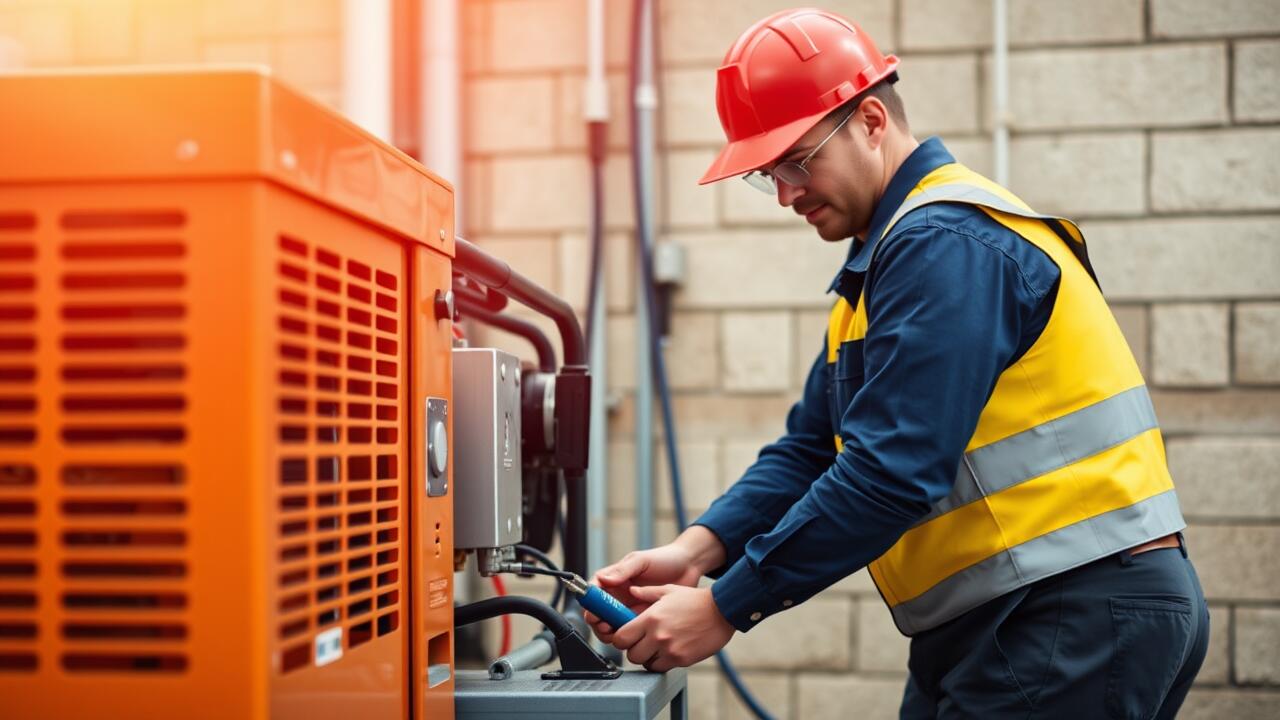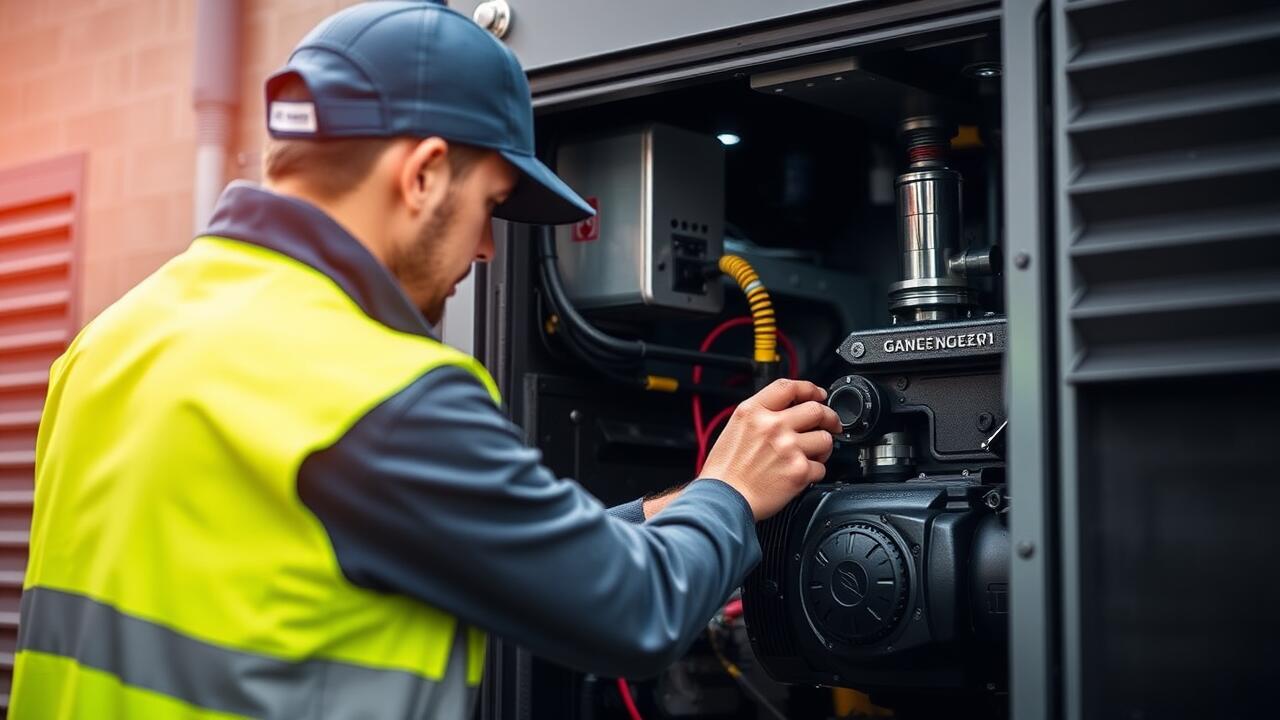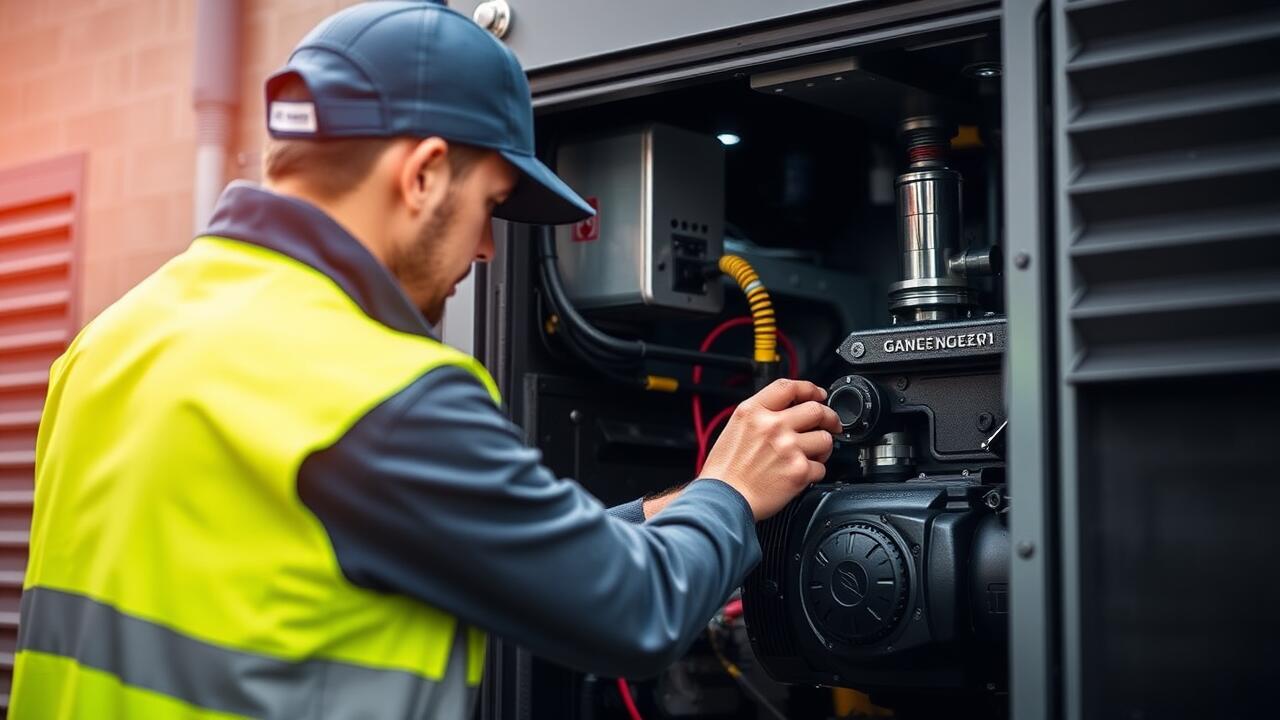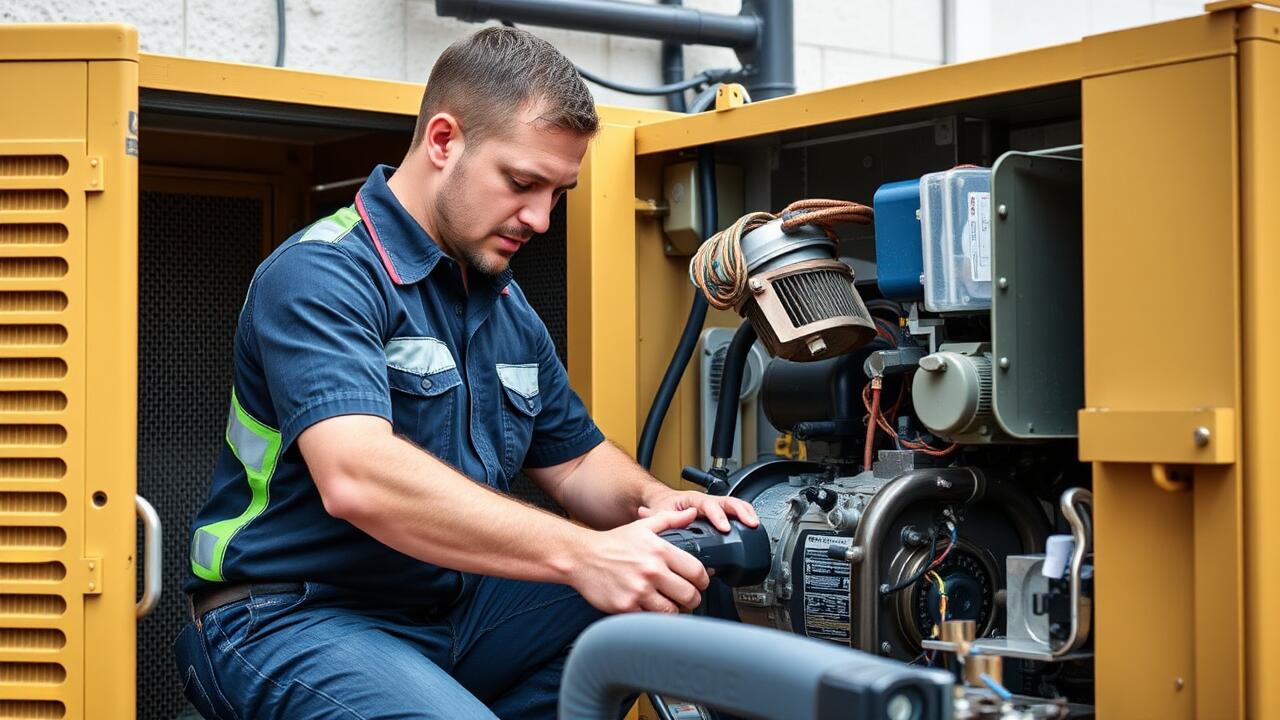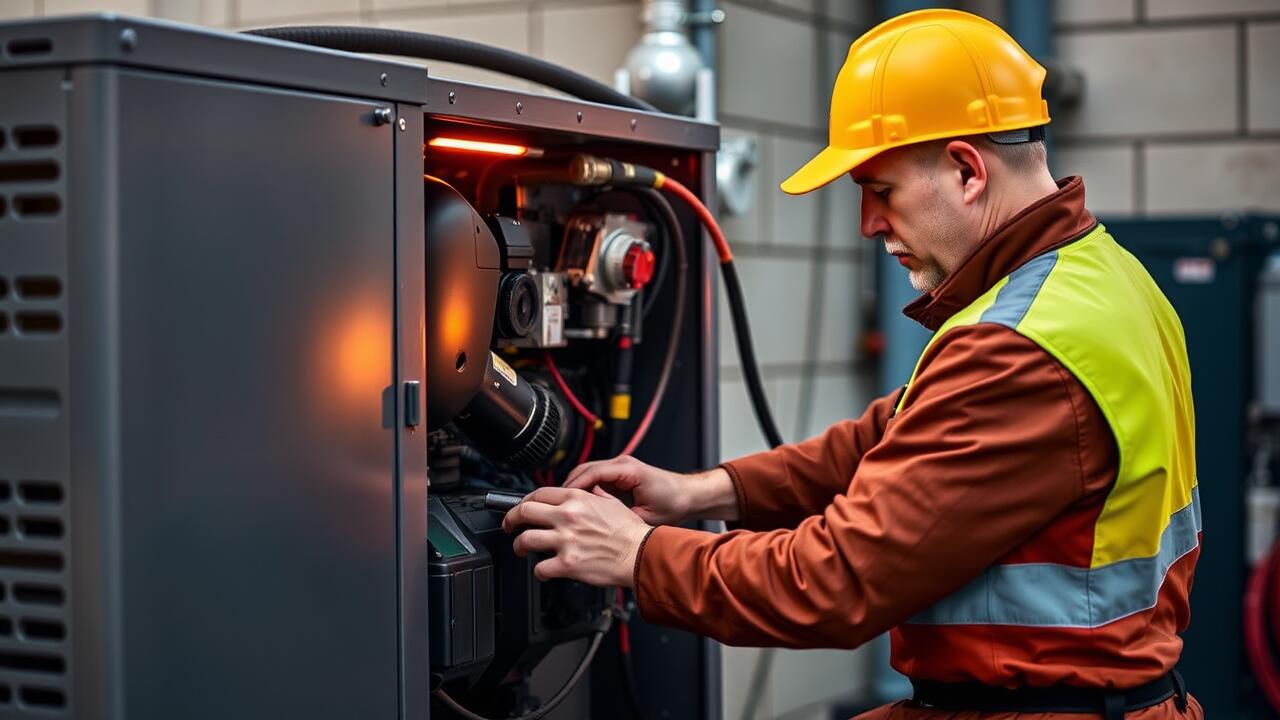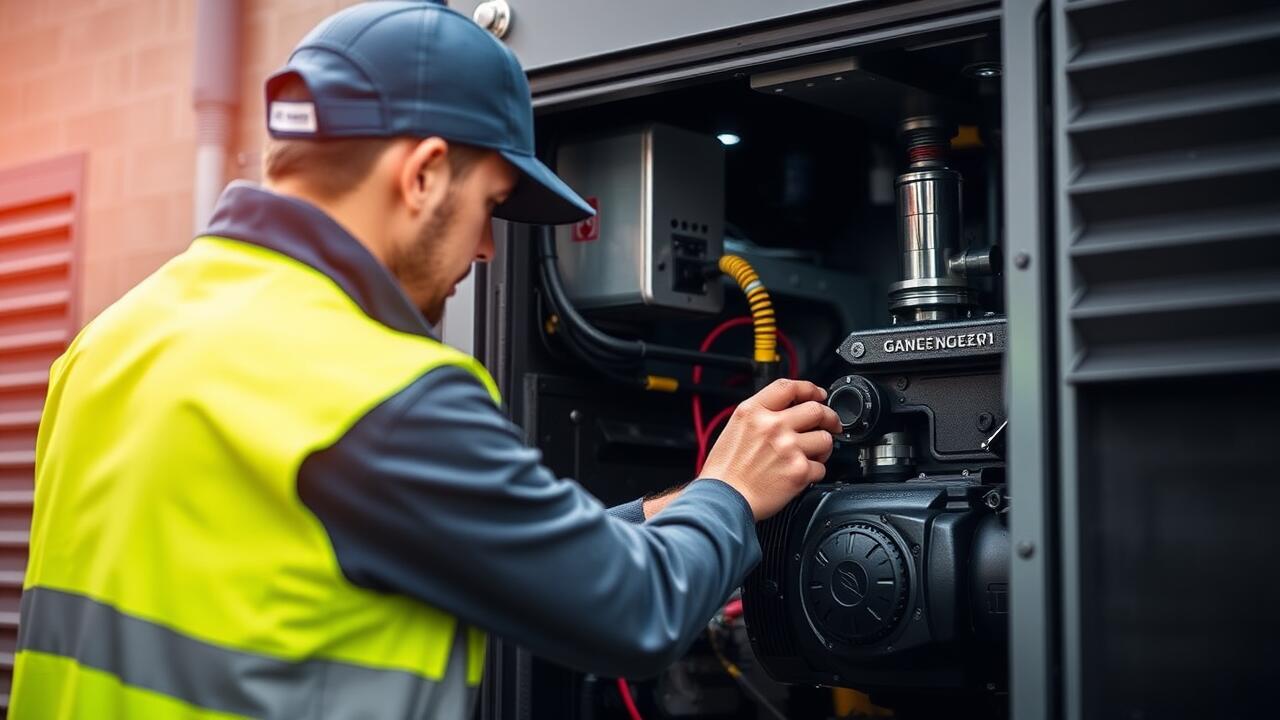
Safety Features to Look For in Generators
When selecting a generator, safety features are crucial to ensure optimal performance and protect your home. Look for models with automatic shut-off systems that activate during overload or low oil levels. This feature helps prevent damage to the generator while providing peace of mind to homeowners. Furthermore, options that include carbon monoxide detectors enhance safety, especially if the generator will be used indoors or in enclosed spaces.
Proper placement and ventilation are also vital safety considerations. Generators should be installed outdoors, away from windows and doors to prevent carbon monoxide entry into your home. Additionally, when planning for Generator Installation in Gulfton, Houston, ensure that adequate airflow surrounds the unit. This helps maintain engine temperatures and prevents overheating, which can lead to serious safety issues.
Importance of Overload Protection
Overload protection is crucial when selecting a generator for your home. This feature helps to prevent damage by automatically shutting off power when the load exceeds the unit's capacity. It safeguards the generator as well as the appliances connected to it. If the generator operates beyond its limits, it can lead to overheating and potential mechanical failure. Understanding the significance of this protection ensures that you choose a generator that can withstand your power needs without risking damage to your electrical system.
When considering generator installation in Gulfton, Houston, it's essential to evaluate models that incorporate reliable overload protection. Many modern generators offer this feature, providing peace of mind for homeowners. This capability not only enhances the generator's lifespan but also ensures the safety of your home’s electrical appliances. A generator with robust overload protection is a wise investment, especially given the unpredictable nature of power outages in the area.
Fuel Options for Generators
When choosing a generator, it is essential to consider the fuel options available. The most common fuels are gasoline, propane, and diesel. Each fuel type has its advantages and disadvantages. Gasoline generators tend to be more widely available and cheaper upfront, but they have a shorter shelf life and may require more frequent refueling. Propane generators, on the other hand, offer cleaner burning fuel and longer shelf life, making them a good choice for those looking for efficiency. Diesel generators are known for their durability and fuel efficiency, making them ideal for heavy-duty usage.
Generator installation in Gulfton, Houston may be influenced by the choice of fuel. Local regulations and availability can affect decision-making as well. Propane and diesel may require specific storage solutions and safety measures that gasoline does not. Additionally, homeowners should consider their long-term energy needs and the potential for power outages when selecting the ideal fuel source. It’s crucial to assess the overall costs, including maintenance and refueling, alongside the generator's power output to find the best fit for your home.
Comparing Gas, Propane, and Diesel Generators
When considering the best fuel option for your generator, gas, propane, and diesel each have their unique advantages. Gas generators are typically more accessible and easier to refuel, making them a popular choice for many homeowners. They are, however, often less efficient and can require more frequent maintenance compared to propane and diesel models. Propane generators offer cleaner-burning fuel, which can be an appealing feature for those concerned about environmental impact. They also tend to have a longer shelf life compared to gasoline, ensuring that your generator remains ready for use during emergencies.
Diesel generators, while often more expensive upfront, provide great fuel efficiency and longevity. They are better suited for heavy-duty applications and can be an ideal choice for homes with high energy demands. When opting for any fuel type, it's essential to consider local regulations and availability. Ensuring proper Generator Installation in Gulfton, Houston, can help enhance the efficiency and reliability of your chosen generator, making it a crucial step in preparing your home for unexpected power outages.
Installation Guidelines for Generators
Proper generator installation is crucial for ensuring safety and functionality. When considering Generator Installation in Gulfton, Houston, it is important to select a location that minimizes exposure to moisture and contaminants. The installation site should be level and free from debris. Adequate space around the generator allows for proper ventilation and ease of maintenance. Local codes and regulations often dictate specific placement requirements, which must be followed to comply with safety standards.
Ventilation is a key factor in generator installation. Insufficient airflow can lead to overheating and reduced performance. Generators require a certain amount of clearance around them, usually specified by the manufacturer. In addition to spacing, the exhaust location should direct fumes away from any openings in the home. This helps to prevent harmful gases from entering the living space, ensuring a safer environment for occupants.
Placement and Ventilation Requirements
Proper placement of a generator is crucial for safe and efficient operation. When installing a generator, ensure it is positioned on a stable, level surface, ideally at least five to ten feet away from your home. This distance helps prevent carbon monoxide fumes from entering living spaces and allows for adequate airflow. Additionally, consider placing the unit in an area protected from heavy rainfall or flooding, as moisture can damage the generator and hinder its performance.
Ventilation is equally important when setting up a generator. Adequate airflow prevents overheating and maintains optimal operating conditions. Ensure that the area around the generator is free of debris and other obstructions that might restrict airflow. For those considering Generator Installation in Gulfton, Houston, consult local regulations regarding placement and ventilation to comply with safety standards. Regular maintenance checks and keeping the surrounding area clear can further enhance the generator’s longevity and reliability.
FAQS
What size generator do I need for a 2000 sq ft house?
The size of the generator you need for a 2000 sq ft house typically ranges between 5,000 to 8,000 watts, depending on the number of appliances and systems you plan to power during an outage.
How can I determine the wattage requirements for my appliances?
To determine the wattage requirements, you can check the labels on your appliances for their wattage ratings or consult the user manuals. You can also use an online wattage calculator to help estimate your needs.
Are there different types of fuel options for generators?
Yes, generators can run on various fuel types, including gasoline, propane, and diesel. Each fuel type has its own advantages and disadvantages, such as availability, cost, and storage requirements.
What safety features should I consider when purchasing a generator?
When purchasing a generator, look for safety features like overload protection, automatic shutoff, carbon monoxide detectors, and circuit breakers to ensure safe operation.
Do I need a professional for generator installation?
While some homeowners may be able to install a portable generator themselves, it is generally recommended to hire a professional for permanent installations to ensure compliance with local codes and safety guidelines.
